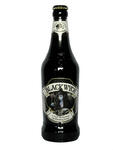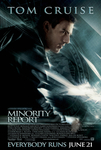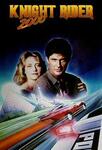A couple of months ago, I discovered D100
Dungeon, a
free print-and-play (at least up to version 2.2) dungeon crawling game where
most aspects of the game are randomly generated by rolling dice. While it is
yet-another game where you walk into a room, kill the monster and loot the
treasure, I was especially enthusiastic about generating the dungeon's map
randomly (look at the pictures on BoardGameGeek, some people have taken the
time to even make very nice looking maps) I've played a few games before
feeling the itch to design such a game myself (game design is something that
has been itching every now and then, but without much result until now).
Roll through the Dungeon (RttD) is the result
of scratching that itch. The structure of the game is very much inspired by
D100 Dungeon, but I changed some of the mechanisms that I didn't like with
what I consider better ones.
Inspired by the James Bond 007
role-playing game I played as a teenager in the early '90s, skill tests have
an associated success grade, indicating how well your character succeeds in
doing a given action. This success grade then determines how much time is
spent on doing the action, and in case of fights, how much damage is inflicted
to the opponent. This contrasts with D100 Dungeon's two-step fights, where the
skill test tells you whether you have hit the opponent, but an second,
unrelated roll determines the damage. I find it more intellectually
satisfactory that the damage depends on how successful the action has been,
rather than being an independent event, but I am aware it is nothing more than
a design decision and it does not model reality any better than the two-step
model. I'm particularly proud of the nomogram
I have designed for computing the success grade, but I must admit that it is
actually not very practical (the table is much faster to use, as it does not
require manipulating a ruler). But I did it for fun, and that is the kind of
geeky stuff I consider fun :)
Another important difference between D100 Dungeon and RttD is the construction
of the dungeon's map. The map is a grid of adjacent squares rooms, and in the
former game, a single D100 roll determines most of the characteristics in a
square: the three exits from the room (corridor, door or wall) and what you
find in it (a feature, a monster or nothing). This leads to paradoxical maps,
where on one side of a room is a door, but the same side seen from the
adjacent room is a solid wall. RttD solves this at the cost of more dice
rolls: room sides are determined by independent D10 rolls, and the room's
content is yet another roll. That means that you need to roll up to four D10
instead of one D100.
Many design decisions from D100 Dungeon have become apparent when trying to
solve the same problems, and have led to the same solutions, reinforcing the
similarity between the two games: roll tables are ordered, with the
not-go-good stuff at the beginning of the table, and the best stuff at its
end. This way, it is possible to get better stuff in some circumstances by
offsetting the dice roll (i.e., adding 10 to the D100 roll). This is
especially important when searching the rooms: feature rooms may contain a
trap, so when searching a feature room, you add 5 to your roll to make it
impossible to find a second trap in the same room, as well as increasing
the chances to find better stuff.
The hardest thing for me in working on this game has been (and still is) to
invent thematic elements, such as monsters, quests, room features, treasures.
I tried not to simply copy D100 Dungeon (partly because it's copyrighted, and
partly because I wanted to prove myself that I could do it), but it has been
really hard. Most monsters and features are coming straight from
the NetHack wiki, monster HP and damage are
generated by a script to create a progression in the difficulty, but the
hardest has been (and still is) quests. Some are more or less direct
adaptations from the quests in D100 Dungeon, a few are from my own imagination
(especially in the “Ridicule does not kill” they say chapter), but the
list of quests is still incomplete (actually, it's the only thing that
justifies not releasing a version 1.0 of the game).
I have now played about 25 games of RttD to test the game, fix the problems
and try and improve it. I'm a bit sad to say that the novelty is wearing off
and that the game feels quite repetitive (it is, by design). What has been the
most fun until now has been to use LaTeX again to produce the PDF booklet and
to develop macros for generating some parts of the tables and making
cross-references. It is nothing fancy, but as a software developer, it's the
kind of things I enjoy doing.
I feel like running out of steam about RttD so I don't know how long I
will continue working on it; certainly I won't anymore spend several hours
daily as I have in the beginning. But as the game is released under Creative
Commons BY – SA, anyone can work on it, write changes, and generally improve
it. The PDF booklet has a section about developing the game, if you are
interested. Among the things that are not implemented yet are curses and
blessings (which D100 Dungeon already has), I was considering making them more
like NetHacks curses i.e., items you find may be cursed and detrimental to
your character if worn or used.










